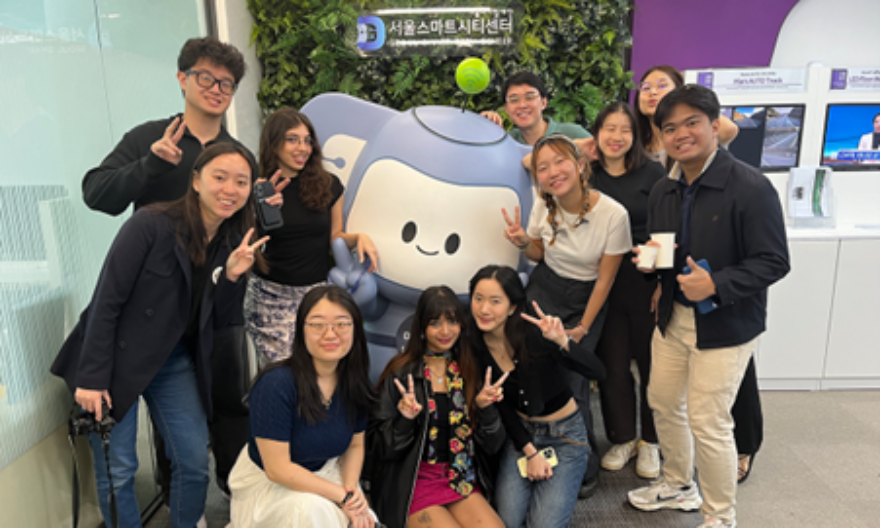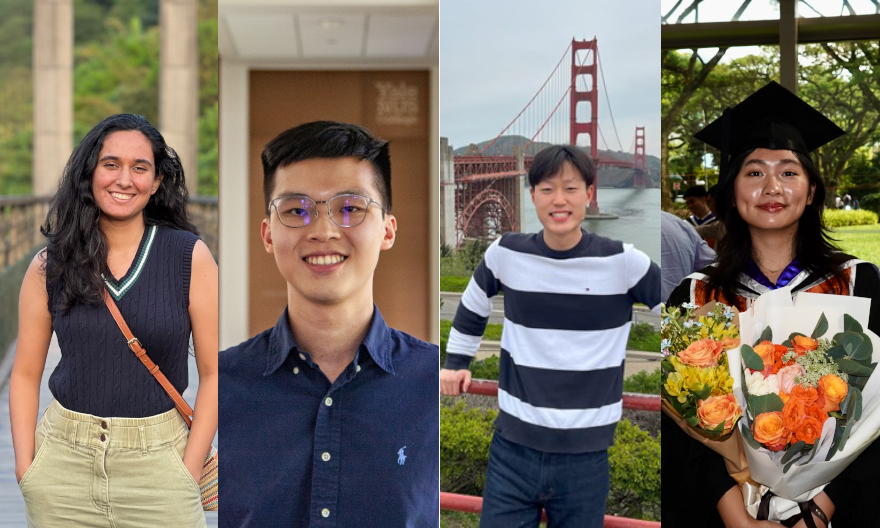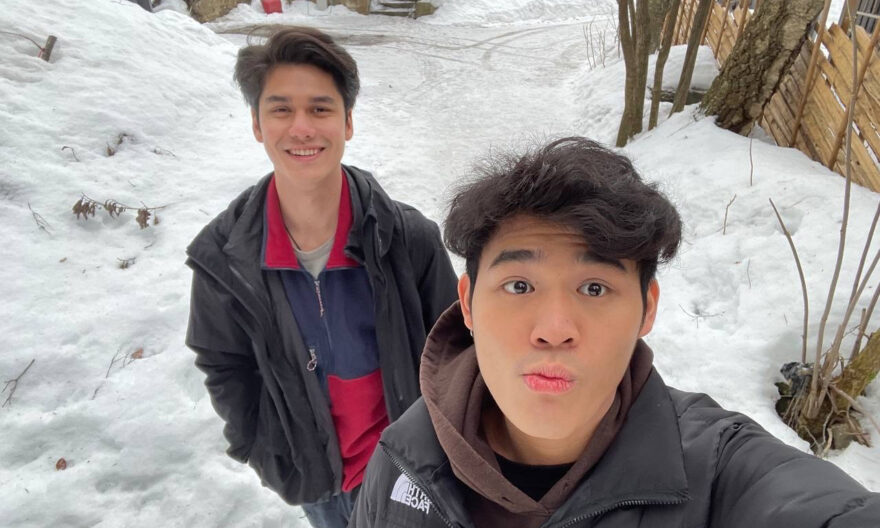New summer academic partnership programmes provide learning opportunities on the road
For students of Yale-NUS College, summer is one of the best times to take learning on the road.
From language study programmes and research projects, to classes and internships, students have their pick from a plethora of global opportunities at the Centre for International and Professional Experience (CIPE). Most recently, two new Summer Academic Partnership Programmes were introduced by CIPE – the Global Citizenship Program in Urban Environment Sustainability (GCP) and the Yale University Sherwin B. Nuland Summer Institute in Bioethics.
Neo Xiaoyun (Class of 2018) and Anjali Kannangath (Class of 2020) were two of the four students who were in the GCP, an academic programme hosted by the Hong Kong University of Science and Technology (HKUST) in partnership with institutions around the world. It aims to prepare students for future challenges in an increasingly urbanised world and promote global collaboration in sustainable development education.
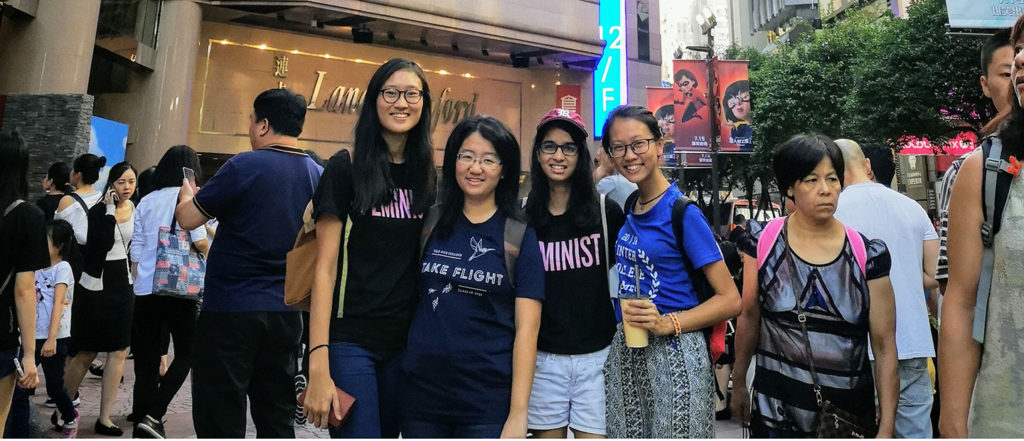 Yale-NUS students in Hong Kong for the Global Citizenship Program. Image provided by Anjali Kannangath.
Yale-NUS students in Hong Kong for the Global Citizenship Program. Image provided by Anjali Kannangath.
For Anjali, her curiosity about how urban sustainability was a viable option for cities compelled her to join the programme. In particular, she was keen to see how location and population changes affect sustainability in public housing and waste management. Echoing her thoughts, Xiaoyun added that in view of the historical and contemporary role of cities in aggravating climate change, she wanted to learn about green buildings, policies and practices of cities.
Spanning three weeks, students in the programme travelled to Hong Kong, Guangzhou and Taipei to explore these cities’ mitigation and adaptation strategies to climate change, as well as the sustainable development of their urban areas. They went on field trips, sat in on presentations by experts and had discussions over dim sum.
“Previously, my knowledge of sustainability measures was restricted to city-specific ones such as waste management approaches, natural and artificial cooling systems and flood strategies,” Anjali said. “I now have an expanded understanding of sustainability and the trade-offs between its different aspects.”
For Xiaoyun, her greatest takeaway from the trip was a more nuanced understanding of urban sustainability. “In particular, my visit to the 50-storey Hyson Place allowed me to recognise first-hand how green buildings are really just compromise solutions to reduce environmental impact. This comes after development agendas have been prioritised.”
The Sherwin B. Nuland Summer Institute in Bioethics, hosted annually by Yale University’s Interdisciplinary Center for Bioethics, is a two-month long intensive summer programme for students looking to better understand how they can use bioethical arguments in their current studies and/or to define their interests in bioethics.
“I joined this programme because I was interested in learning more about normative arguments regarding health law and policy. For example, we often hear arguments supporting the enactment of legislation to protect public health. I wanted to delve deeper into the moral aspects of such laws and policies,” said Daryl Yang (Class of 2018), a Double Degree in Law and Liberal Arts Programme (DDP) student.
The full programme offers students approximately 150-200 hours of contact time with professors and other students. Days often start off with a bioethics lecture by a Yale scholar in the morning and small-group seminars in the afternoon. The programme also includes field trips to places like The Hastings Center, the world’s first bioethics research organisation, or the Connecticut Hospice, which inaugurated hospice care in America in 1974, as well as networking events with faculty and students.
Daryl became interested in disability studies after taking a class on the sociology of disability and another on international human rights treaties. “In the latter class, I learned about the Convention on the Rights of Persons with Disabilities (CRPD) and was deeply intrigued. I later ended up changing my capstone topic when I came back to Singapore to something related to CRPD because I wanted to explore more in this field.”
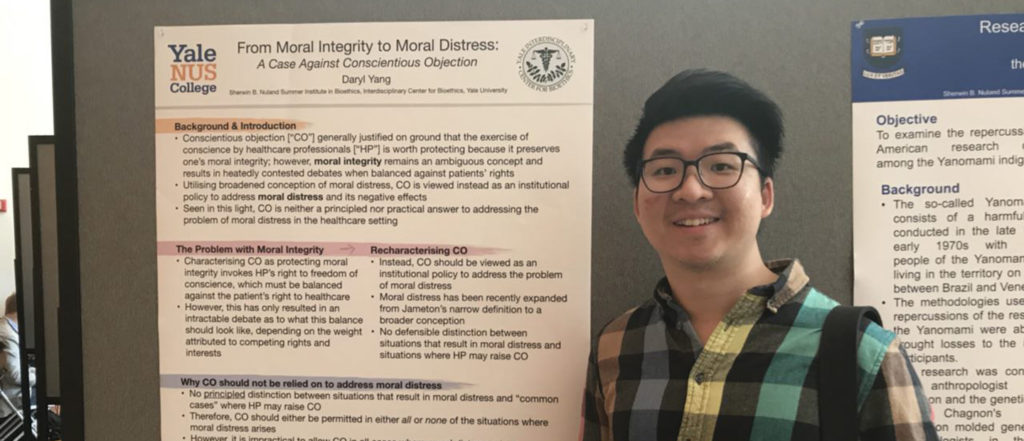 Daryl at a poster session in Yale University. Image provided by Daryl Yang.
Daryl at a poster session in Yale University. Image provided by Daryl Yang.
Another participant, Odelia Teo (Class of 2020) who is a Life Sciences major, explained that bioethics is a subject that combined both her interests in philosophy and science. “It is a field that allows me to explore the nuances of scientific discoveries that shape modern day bioethical policies. One of my biggest takeaways was understanding that while there exists fundamental ‘rules’ of bioethics, there is never a textbook answer to a bioethical conundrum. Each situation must be analysed in its idiosyncrasy.”
Odelia said that her fondest memory of the programme was an insightful lecture by Clark Professor of Philosophy Shelly Kagan, in which he broke down complex concepts into easily digestible and understandable information.
Overall, the various overseas summer academic programmes were enriching both academically and personally for the students. Free time during the respective programmes was either spent travelling and the region or sampling local gastronomic delights, building friendships with fellow course mates or simply relishing independent living in a foreign country. For Xiaoyun, her eating and WeChat adventures were some of her favourite times.
“The steamed milk pudding, scrambled eggs and toast served up at the Australia Dairy Company, a traditional Hong Kong restaurant, are to die for,” she shared. “Also, having to converse mainly in Mandarin and communicate using traditional Chinese characters on WeChat were unprecedented challenges that made my GCP experience memorable.”

